Are you considering building a container home in the vibrant city of Philadelphia? Wondering if it’s legal and what regulations you need to be aware of? Look no further!
In this comprehensive guide, we will walk you through everything you need to know about the legality of sea container homes in Philadelphia.
In this content piece, we will cover all the important aspects, including the current regulations, permits required, zoning laws, and the process you need to follow to ensure a smooth and legal construction of your container home.
By the end, you’ll have all the information you need to make informed decisions about your container home project in Philadelphia.
And so now, let’s dive in and explore the exciting world of container homes and their legality in the City of Brotherly Love!
Table of Contents
Are Shipping Container Homes Legal in Philadelphia?
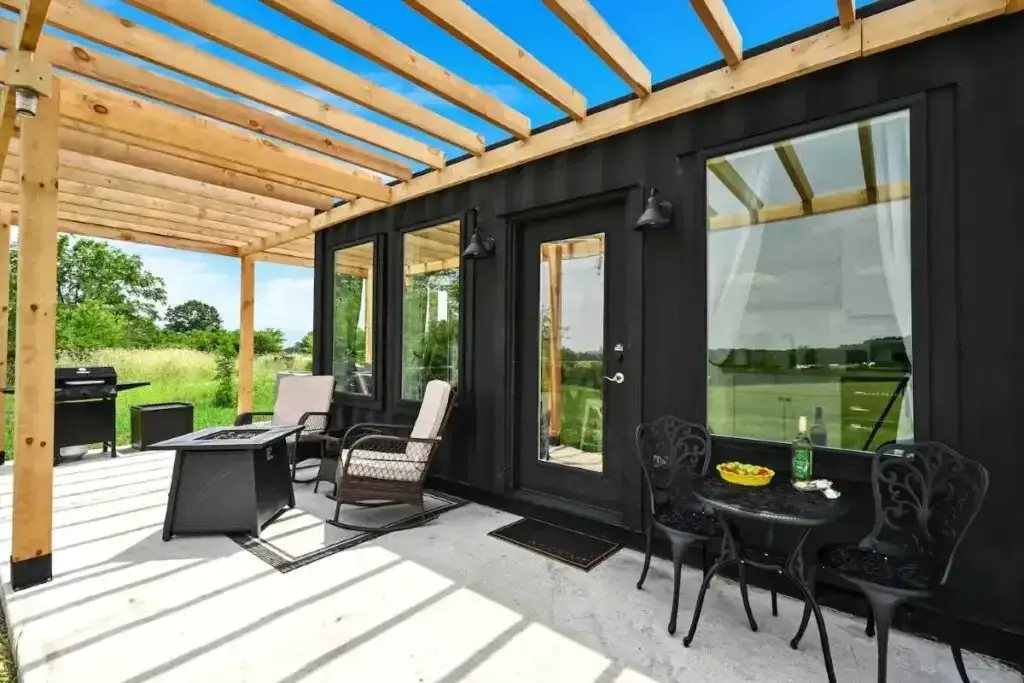
Shipping container homes are legal in Philadelphia, but like any other building project, they must comply with rules and regulations. There are two sets that apply here: one governing land use, the other focused on quality construction standards.
If you want to understand the zoning laws of an area, start by learning what categories of land are allowed in that place.
If you intend to build a container home in Philadelphia, first confirm that the zoning laws permit this type of home. Once you’ve met all the zoning laws, it’s time to focus on acquiring building permits.
Read More on How To Build A Container Home Step-by-Step For Beginners And Starters
Cost of Building a Shipping Container Home in Philadelphia
The cost of constructing a shipping container house in Philadelphia is primarily determined by the price of the container, what materials you need to make it, and how complicated your design is.
A prefabricated shipping container house in Philadelphia can cost between $15,000 and $50,000. The price may change depending on the size of the structure and the design specifications. Some big shipping houses produced by manufacturers can go for as much as $250K!
It will cost more to convert it into a shipping container home in Philadelphia if you hire a builder. However, if you buy one of the prefabricated models designed by manufacturers, you can save a lot on hiring local contractors.
If you hire a building contractor to oversee the construction of your container house, labor costs may range from $50-$200.
Material and equipment expenses will also add significantly to the overall price tag. In some cases, this can reach as high as $15,000 or more.
The cost of building your own shipping container house in Philadelphia can vary greatly according to your skills and the quality of work you want. Some home owners with construction experience can make their container houses for around $4,000 to $10,000.
But you also need to consider delivery costs; it could run from about $250 up to about half a thousand dollars for transport by truck over short distances (within 20 miles).
Read More: Building Shipping Container Homes in Pennsylvania: What You Need to Know
Zoning Regulations in Philadelphia
Understanding the zoning regulations in Philadelphia is crucial when it comes to determining the legal status of container homes. These laws dictate where certain types of homes can be built and can vary from one neighborhood to another.
It’s important to note that container homes may be permitted in some areas or neighborhoods, while they may be restricted or even prohibited in others.
This is why it’s essential to thoroughly research and understand the zoning laws specific to the desired location.
- Some neighborhoods may have more flexible zoning regulations that allow for alternative housing options like container homes.
- Other areas may have very strict laws that don’t allow or heavily restrict container homes.
To ensure compliance with zoning laws, it is always a good idea to consult with local authorities, such as the Philadelphia Department of Licenses and Inspections, to obtain information on specific areas where container homes may be permitted or restricted.

- Powerful and reliable machine.
- Capable of cutting up to 1/2 inch steel, aluminum, and stainless steel.
- Built-in pilot arc for easy starting and quick cutting.
- Auto air pressure shut-off, over-temperature protection, anti-stick technology.
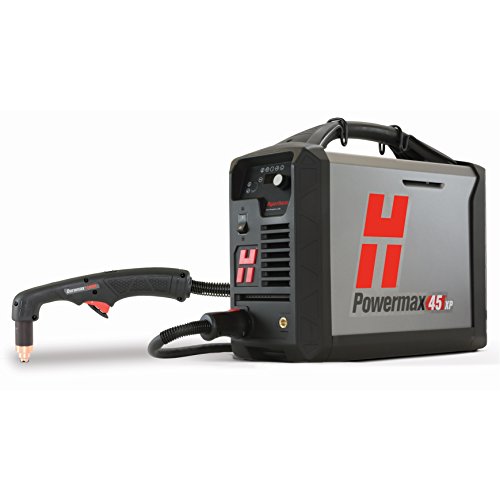
- Powerful and reliable machine.
- Featuring True Hole technology and adjustable amperage.
- Built-in air compressor.
- Easy-to-use control panel, and an ergonomic handle.
- Efficient.
Building Codes and Permits
In order to build a container home in Philadelphia, it is crucial to understand the building codes and permit requirements that apply to such projects.
Philadelphia has specific laws in place to ensure the safety, structural integrity, and compliance with zoning instructions.
Overview of Philadelphia’s Building Codes and Permit Requirements
Philadelphia’s building codes outline the standards and guidelines that must be followed for all types of construction projects, including container homes.
These codes cover various aspects such as structural stability, electrical systems, plumbing, fire safety, and accessibility.
When it comes to getting permits for container home construction, the process usually includes several steps. It is important to familiarize yourself with the following regulations:
- Building Permit: A building permit is required for any major construction or renovation project. This includes container homes, as they involve changes to the property’s structure.
- Zoning Permit: Philadelphia has specific zoning regulations that dictate where and how container homes can be built. A zoning permit is necessary to ensure compliance with these laws and to determine if the proposed location is suitable for a container home.
- Electrical and Plumbing Permits: If you plan to install electrical and plumbing systems within your container home, separate permits will be required to ensure they meet the safety standards set by the city.
- Environmental Permits: Certain container home projects may require extra permits related to environmental impact, especially if there are concerns about storm water management or environmental preservation.
Each permit comes with its own set of requirements, fees, and inspection processes. It is important to thoroughly research and understand these regulations before embarking on your container home construction project in Philadelphia.
Read More on 1 Bedroom Shipping Container Home Floor Plans – Great Photos
Alternative Housing Options in Philadelphia
Looking for a unique and cheap housing option in Philadelphia? Explore alternative forms of housing that offer a fresh perspective on urban living.
Container Homes: A Creative and Sustainable Choice
Container homes, also known as sea container houses, are gaining popularity as an innovative housing option. These homes are created by repurposing sea containers, providing an eco friendly and cost effective solution.
Container homes in Philadelphia are subject to the city’s zoning regulations and building codes. However, with the right permits and design considerations, container homes offer a distinctive and customizable living experience.
Exploring Other Alternative Housing Options
In addition to container homes, Philadelphia offers a variety of alternative housing options to suit different needs and likes:
- Tiny Houses: These compact homes maximize space efficiency and are perfect for those seeking a simple and minimalist lifestyle.
- Accessory Dwelling Units (ADUs): ADUs are small, separate living spaces that can be constructed on the same property as an existing house. They offer an opportunity for home owners to create supplemental rental income or accommodate extended family members.
- Co-Housing Communities: Co-housing communities are intentional neighborhoods where residents share common spaces and amenities while maintaining their private living areas. This collaborative living arrangement promotes a sense of community and fosters social connections.
Each of these alternative housing options has its own unique advantages and considerations. It’s important to research and consult with professionals to determine the best fit for your lifestyle and needs.
Read More on Arizona Solar Panels – All About and Complete Expert Scrutiny
Sustainability and Environmental Impact
Container homes have gained popularity in recent years due to their potential to align with sustainable living practices and reduce environmental impact.
By repurposing shipping containers, these homes add to the recycling and reusing of materials, which helps to reduce waste and conserve resources.
In Philadelphia’s context, container homes can be a relevant housing option that promotes sustainability. The city has been making efforts to increase its environmental consciousness, and container homes can support these initiatives.
The use of recycled containers reduces the need for traditional construction materials, which can help minimize the extraction of natural resources.
Container homes can also be designed with energy efficient features, such as insulation, solar panels, and low energy lighting. These sustainable elements contribute to reducing energy consumption and can help home owners save on utility costs.
Furthermore, container homes have the potential to be equipped with rainwater collection and recycling systems, which can reduce water consumption and reliance on local water resources.
When considering sustainability and environmental impact, it’s important to note that proper construction and insulation are essential to ensure energy efficiency and minimize heat loss.
Additionally, container homes should be designed and located with consideration for natural ventilation and shading to optimize energy usage.
- Container homes support recycling and reusing materials, reducing waste and conserving resources.
- Energy-efficient features can be incorporated into container homes, such as insulation, solar panels, and low energy lighting.
- Rainwater collection and recycling systems can reduce water consumption and reliance on local water resources.
- Proper construction and insulation are essential for energy efficiency and minimizing heat loss.
- Consideration for natural ventilation and shading is important for optimizing energy usage.
Read More on 20 Best Interior Design Ideas For Beautiful Shipping Container Homes
Architectural and Design Considerations
When it comes to container homes in Philadelphia, there are several unique design and architectural considerations that need to be taken into account.
These considerations go beyond the traditional approach to home design and require a different mindset and approach.
First and foremost, ensuring structural integrity is crucial. Container homes rely on the strength and durability of shipping containers, which are primarily designed for transportation rather than habitation.
Therefore, it is important to work with a professional architect or structural engineer who has experience in designing container homes.
They will be able to assess the structural integrity of the containers and make any necessary modifications to ensure the safety and stability of the home.
Functionality is another important aspect to consider when designing a container home. The limited space and unconventional shape of shipping containers require careful planning and creative solutions.
Architects and designers need to optimize the use of space and find innovative ways to incorporate all the necessary amenities and living spaces within the container home.
While functionality is crucial, so is aesthetic appeal. Container homes have gained popularity due to their unique and modern look.
Therefore, it is important to strike a balance between functionality and aesthetics. Architects and designers should aim to create a home that not only meets the functional needs of its occupants but also showcases an appealing and aesthetically pleasing design.
Discussions on architectural and design considerations for container homes should involve open brainstorming and collaboration between the homeowner, architect, and designer.
It is important to have a shared vision and understanding of the goals and objectives of the project. This will ensure that the final design meets the expectations and requirements of the homeowner while adhering to the regulations and restrictions set forth by the city of Philadelphia.
Pros and Cons of Container Homes
Container homes have gained popularity in recent years due to their unique design and lower cost compared to traditional housing.
However, like any other alternative housing option, container homes have their own pros and cons that need to be considered before making a decision.
Read More on 9 Creative Ideas For Shipping Container Home Design And Décor
Advantages of Container Homes
- Cost-effectiveness: Container homes are often more affordable than traditional homes, making them an attractive option for budget-conscious individuals.
- Durability: Shipping containers are built to withstand harsh weather conditions and are highly durable. This means container homes can have a longer lifespan compared to conventional homes.
- Customization: Containers can be modified and designed to fit individual needs and preferences. With creative architectural design, container homes can be transformed into cozy and unique living spaces.
Limitations of Container Homes
- Space limitations: Shipping containers have fixed dimensions, which can limit the amount of living space available. It may require careful planning and design to optimize the usage of space.
- Insulation and temperature control: Shipping containers are not naturally insulated, which can lead to issues with temperature control and energy efficiency. Proper insulation and ventilation measures need to be taken into consideration during construction.
- Permitting challenges: Depending on local regulations and zoning restrictions, obtaining permits for container homes can be challenging. It is essential to consult with relevant authorities and ensure compliance with building codes.
While container homes offer several advantages, it’s important to weigh the pros and cons to make an informed decision.
Understanding the limitations and potential challenges associated with container homes will help you determine if this housing option is suitable for your needs and preferences.
Read More on Is It Cheaper To Build A Barndominium Or Container Home? Easy
Case Studies and Examples
At this point, we’ll do some exploration of successful case studies or real-life examples of legalized container homes in Philadelphia.
Without doubt, this will provide our readers today with valuable insights and inspiration to individuals interested in container homes.
Case Study 1: Grant Family’s Container Home
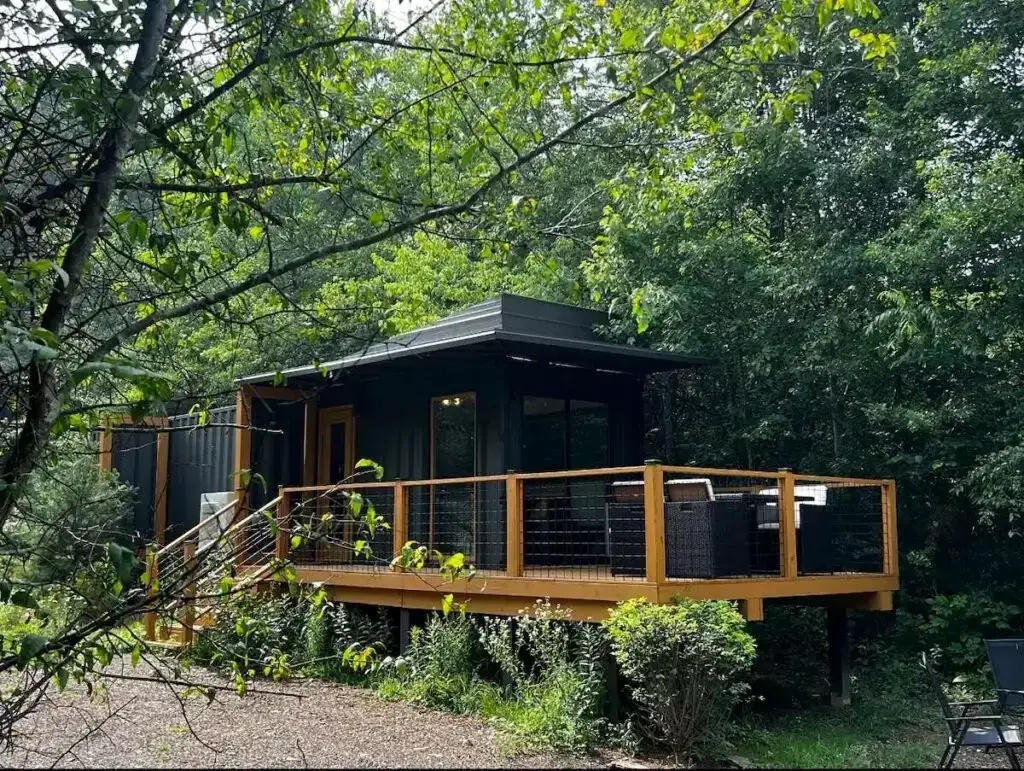
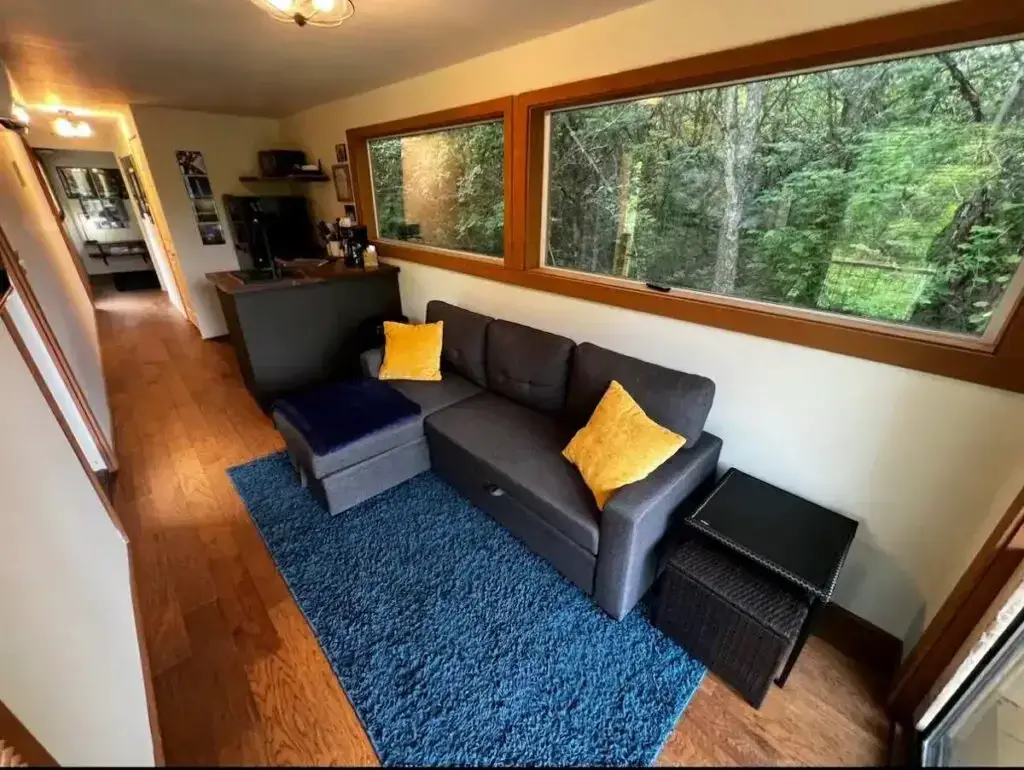
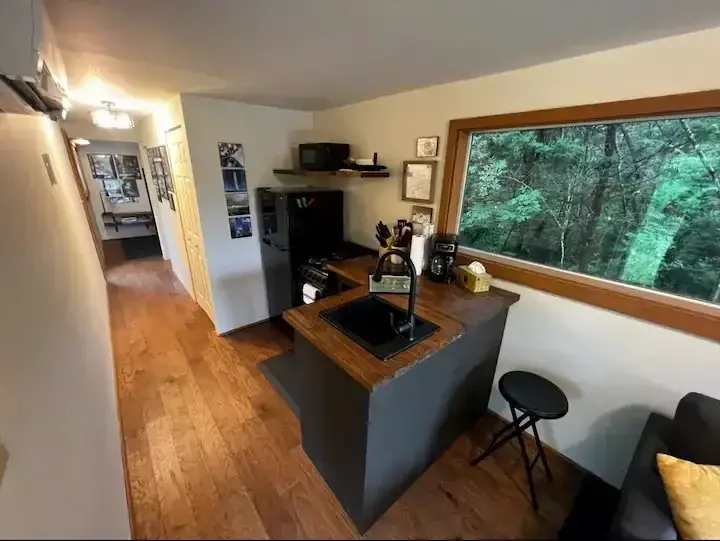
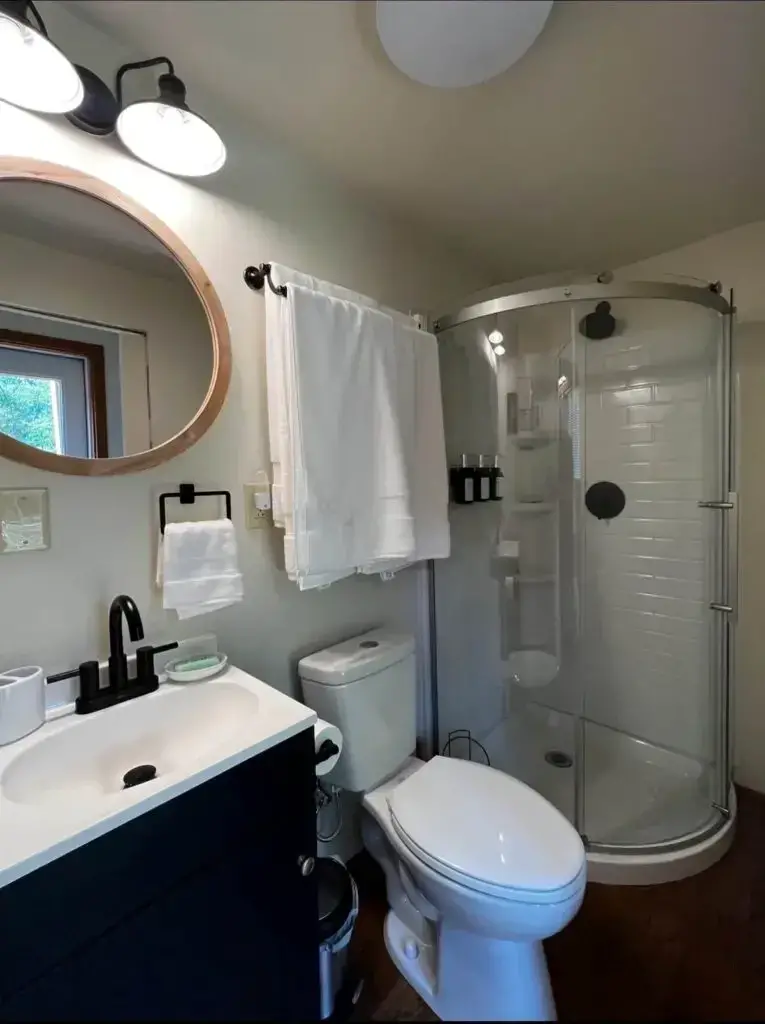
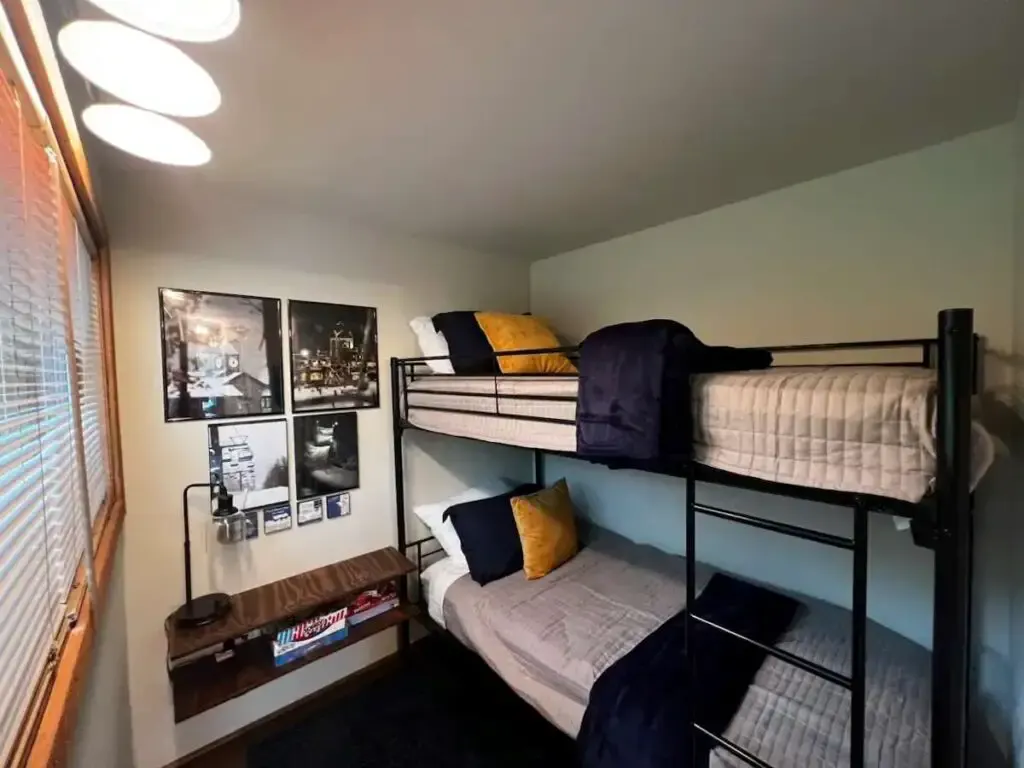
Hailing from Philadelphia, the Grant family found a unique solution to their housing needs by converting shipping containers into a beautiful home.
They successfully navigated the zoning regulations and building codes of the city to legalize their container home. The Grant family’s container home showcases modern architecture, sustainable design, and a cost-effective housing solution.
Case Study 2: The Claudio Residence – A Sustainable Container Home
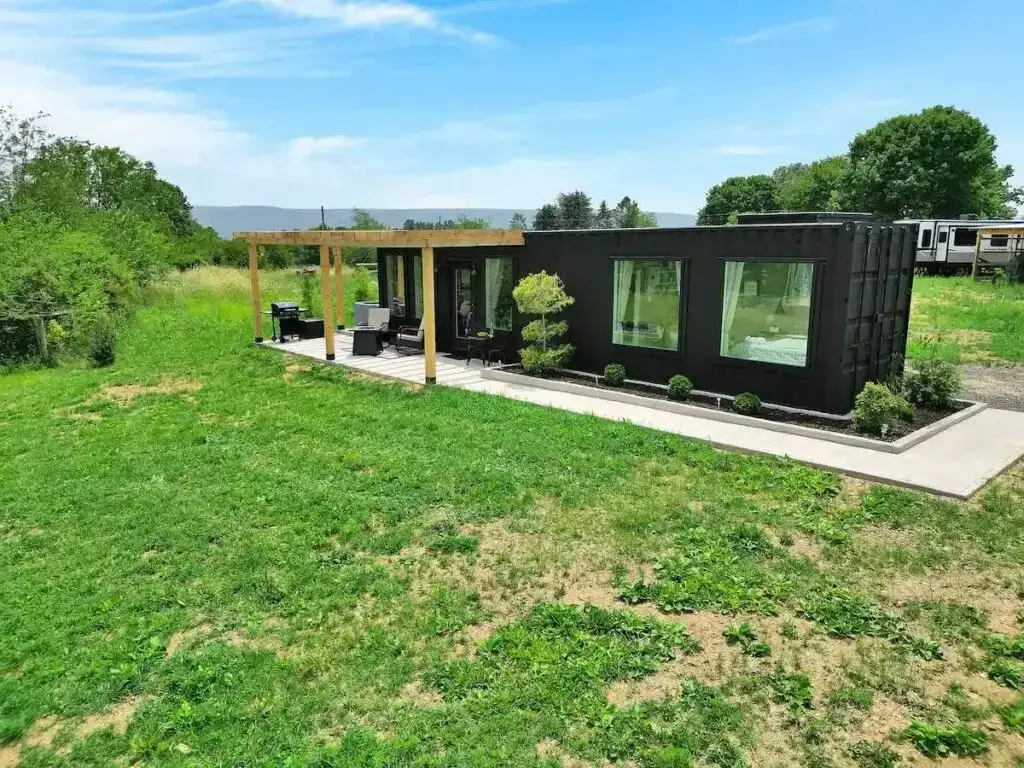
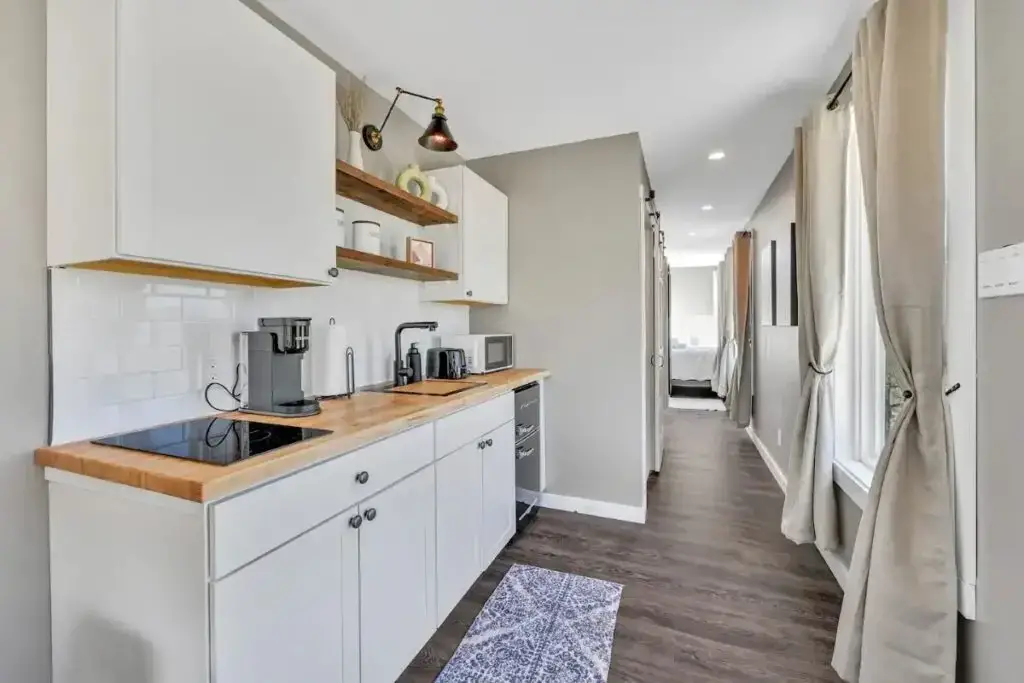
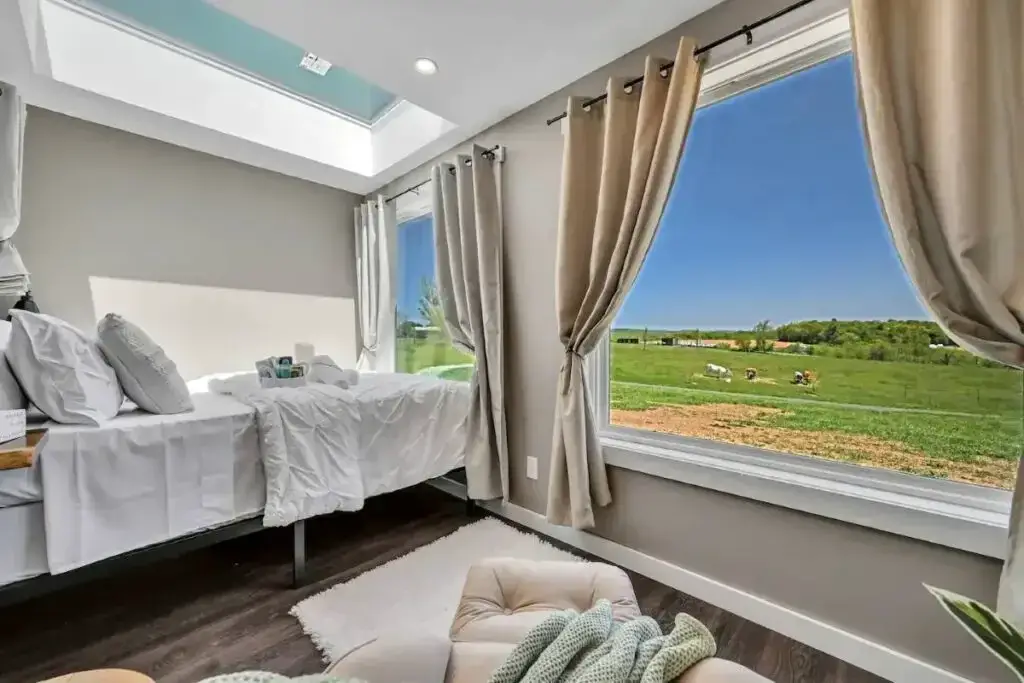
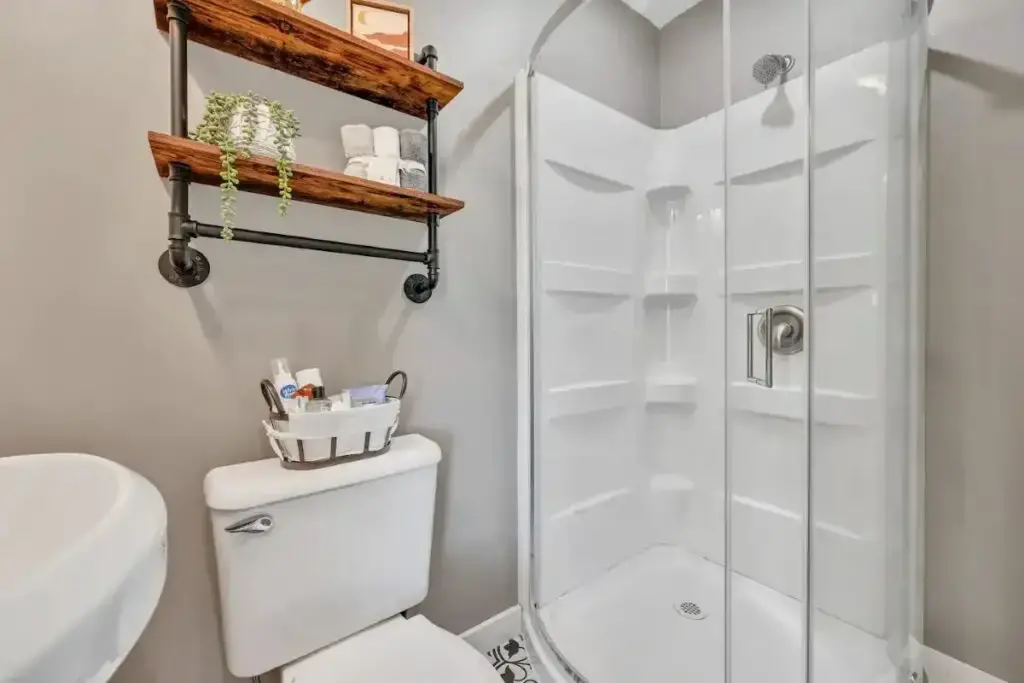

Located in a vibrant neighborhood of Pine Grove, Pennsylvania, the Claudio residence is a shining example of how container homes can be both sustainable and aesthetically pleasing.
With the use of solar panels, rainwater harvesting systems, and energy-efficient design, the Johnsons have significantly reduced their environmental footprint.
Without doubt, this case study highlights the possibilities of combining sustainability with alternative housing options.
Read More on 13 Amazing Energy-Smart Tips to Keep Your Home Cool in Summer
Case Study 3: Moseley-Mathesius Container Home
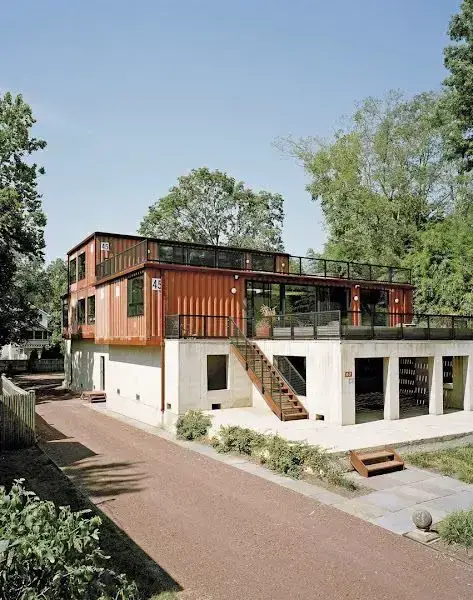





Martha Moseley and Bill Mathesius went beyond a single container home and created a home out of 11 containers in Philadelphia.
Their innovative approach transformed a vacant lot into an eco-friendly and affordable housing development. They did this by building their home on an abandoned concrete foundation.
Case Study 4: Philadelphia Pop-up Park – Container Creativity




The Philadelphia pop-up park serves as both a resting area and a park for local businesses in Philadelphia. This unique park showcases the versatility of container architecture and its potential for customization.
The Philadelphia pop-up park is not only a unique park but also a source of inspiration for the artist’s craft and a platform for community engagement through workshops and exhibitions. It’s divided into four different areas with different themes.
These case studies and examples demonstrate the viability and success of container homes in Philadelphia. As I have noted, they offer valuable insights and inspiration to individuals interested in pursuing container homes as an alternative housing option.
Read More on Can I Screw Into A Shipping Container? Simple Explanation
Community and Neighborhood Concerns
Addressing potential concerns raised by neighbors or community stakeholders regarding container homes:
- Aesthetics: One common concern raised by neighbors is the visual impact of container homes. However, it’s important to note that container homes can be designed and modified to match the surrounding aesthetics, just like any traditional home.
In short, with the right architectural design and landscaping, container homes can blend seamlessly into any neighborhood. - Property Values: Another concern is the potential impact on property values. However, studies have shown that container homes, when well-designed and maintained, can actually contribute positively to property values.
The unique and eco-friendly nature of these homes can attract discerning buyers and investors who appreciate their distinctiveness. - Perceived Negative Impacts: Some community stakeholders may express concerns over perceived negative impacts associated with container homes. These concerns often center around misconceptions regarding safety, durability, or noise levels.
In fact, it’s crucial to educate and inform community members about the quality and construction standards that container homes adhere to. Clear communication can help alleviate any unfounded fears or doubts.
Read More on Is A Container Home A Good Investment For Daring Homeowners?
Legal Challenges and Precedents
Container homes have gained popularity in recent years as a sustainable and cost-effective housing option. However, their legality in Philadelphia and similar regions can be a subject of concern for potential residents.
Exploring any legal cases, precedents, or rulings related to container homes in Philadelphia can provide valuable insights into the legal landscape and potential challenges container homes may face.
Innovative Housing Solutions in Philadelphia
Philadelphia, known for its rich history and vibrant neighborhoods, is also at the forefront of innovative housing solutions.
Container homes, along with other creative ideas, technologies, and emerging trends, are reshaping the way people think about housing in the city.
Overlap Between Container Homes and Other Innovative Housing Ideas
Container homes are just one piece of the puzzle when it comes to innovative housing in Philadelphia. The city has embraced various housing ideas that challenge traditional norms.
From tiny homes and modular construction to adaptive reuse of historic buildings, Philadelphia is a hub for experimentation.
Container homes share many similarities with these other innovative housing ideas. They offer flexibility in design and construction, allowing for customization and adaptability to different spaces. They also provide an affordable and sustainable option for those looking to live in the city.
The Role of Container Homes in the Broader Innovative Housing Sector
Container homes are not just standalone solutions; they play a crucial role in the broader innovative housing sector in Philadelphia.
They are often used as prototypes to test new construction methods, materials, and technologies. Their versatility and affordability make them ideal for experimenting with innovative design and sustainability features.
Furthermore, container homes contribute to the city’s efforts to address housing shortages and provide affordable options for residents. By repurposing shipping containers, Philadelphia is embracing a circular economy and reducing waste in the construction industry.
As the city continues to push boundaries in the housing sector, container homes serve as a symbol of Philadelphia’s commitment to innovation, sustainability, and community development.
Read More on Can You Build A Shipping Container Home In Tennessee? Ultimate Guide
Construction, Homes, and Plan Information
When it comes to container homes in Philadelphia, it is important to understand the construction process and the various aspects associated with these alternative dwelling options.
Container Home Construction
Container homes are built using repurposed shipping containers that are designed to be durable and structurally sound.
These containers provide a versatile foundation for building homes and can be customized to suit individual needs and preferences.
Materials: Container homes typically utilize steel shipping containers, which are known for their strength and weather resistance. These containers can withstand harsh conditions and require minimal maintenance.
Installation: Building a container home involves several steps, including site preparation, foundation installation, and container placement.
Once the containers are in place, they are fitted with doors, windows, and insulation to create a comfortable living space. Electrical and plumbing systems can also be installed according to the specific requirements of the homeowner.
Structural Considerations: Container homes are designed to meet building codes and regulations to ensure safety and structural integrity.
Adequate reinforcement may be required to support the weight of additional floors or roof modifications. It is crucial to consult with a licensed architect or engineer to ensure compliance with local regulations.
Read More on 10 Greatest Shipping Container Garage Examples From Across The World
Exploring Container Homes
Container homes offer a range of benefits and considerations that potential homeowners should be aware of. Here are a few key aspects to consider:
- Cost-Effective: Container homes can be a cost-effective housing option compared to traditional homes, as the materials and labor costs tend to be lower.
- Eco-Friendly: By repurposing shipping containers, container homes contribute to sustainability efforts by reducing waste and minimizing resource consumption.
- Design Flexibility: Containers can be transformed into various architectural styles, allowing homeowners to create unique and aesthetically pleasing living spaces.
- Space Efficiency: Container homes maximize space utilization through clever design and layout. They offer compact living solutions without compromising on comfort and functionality.
It is crucial for individuals interested in container homes to thoroughly research and consider all aspects before making a decision.
Consulting with professionals and visiting existing container home examples can provide valuable insights into the feasibility and suitability of this housing option.
Shipping Containers and their Potential
Shipping containers have gained popularity in recent years as a unique and innovative building material for container homes.
These sturdy, stackable, and versatile steel boxes offer a range of advantages for those looking to create unconventional living spaces.
Some Advantages of Using Shipping Containers
One of the key advantages of using shipping containers is their availability. With millions of containers sitting unused in ports around the world, repurposing them for housing helps reduce waste and environmental impact.
Moreover, the abundance of containers means that they can be obtained at a relatively low cost, making them an affordable option for those on a tight budget.
Aside from cost and availability, shipping containers also offer durability and strength. Designed to withstand the harsh conditions of international shipping, these containers are made to resist extreme weather conditions, including heavy winds and even earthquakes. This structural resilience makes them a highly secure and safe option for housing.
Read More on Simplified Explanation Of A Solar Water Heater Working Principle
Challenges of Using Shipping Containers for Homes in Philadelphia
However, it’s important to note that using shipping containers as building materials also presents challenges and considerations.
One of the main challenges is insulation. Containers are primarily designed for cargo transport, meaning that they have minimal insulation properties.
Additional insulation will be required to regulate temperature and prevent condensation within the container home.
Another consideration is the size and layout of the containers. While their standardized dimensions make the containers easy to work with, it also limits the design possibilities. Creating functional living spaces within these confined spaces requires careful planning and creative thinking.
Furthermore, local building codes and regulations may pose obstacles. While container homes are legal in many parts of the country, including Philadelphia, specific requirements and permits must be adhered to. It’s crucial to consult with local authorities and professionals to ensure compliance with zoning and safety regulations.
In conclusion, shipping containers have tremendous potential as building materials for container homes. Their availability, durability, and cost-effectiveness make them an attractive option for individuals seeking alternative housing solutions.
However, it’s essential to address the challenges and considerations associated with their use to create comfortable and compliant living spaces.
Conclusion
Container homes have been a topic of much discussion and debate in Philadelphia. Throughout this content, we have explored various aspects surrounding the legality and viability of container homes in this city.
To recap, we have discussed zoning regulations, building codes and permits, alternative housing options, sustainability and environmental impact, architectural and design considerations.
In addition, we also touched on pros and cons of container homes, case studies and examples, community and neighborhood concerns, legal challenges and precedents, innovative housing solutions, construction, homes, and plan information, and the potential of shipping containers.
After examining all these factors, it is clear that container homes have the potential to be a solution for the housing needs of the city. However, there are still challenges and limitations to overcome.
In terms of legality, container homes face some hurdles. While Philadelphia does not have specific regulations for container homes, they are generally subject to the same zoning regulations as any other residential structure. This can make it difficult to find suitable locations for building container homes.
Read More on Council Approval For Container Homes In South Australia – Is it Important?
Finally on Building Codes and Permits
Additionally, building codes and permits need to be carefully followed to ensure the safety and structural integrity of container homes. This requires thorough planning and cooperation with the local authorities.
Despite these challenges, container homes offer numerous benefits. They are a sustainable and environmentally friendly housing option, utilizing recycled materials and reducing construction waste.
Most compelling evidence, their unique design and versatility make them a popular choice for innovative and affordable housing solutions.
Through case studies and examples, we have seen how container homes have been successfully incorporated into different communities.
Not to mention, by taking care and looking into community and neighborhood concerns and doing open dialog, container homes can play a positive role in improving the urban landscape.
While there have been legal challenges and precedents around container homes, the growing interest in alternative housing solutions in Philadelphia shows the potential for change.
With continued innovation and collaboration, container homes could become a more widely accepted and embraced housing option in the future.
In conclusion, container homes are a fascinating and a concept that is full of promise. Although there are legal and practical considerations for you to go through, their unique qualities and benefits make them a worthwhile choice for those looking for cheap and sustainable housing options in Philadelphia.
Read More: How to get permits for container homes in Florida


